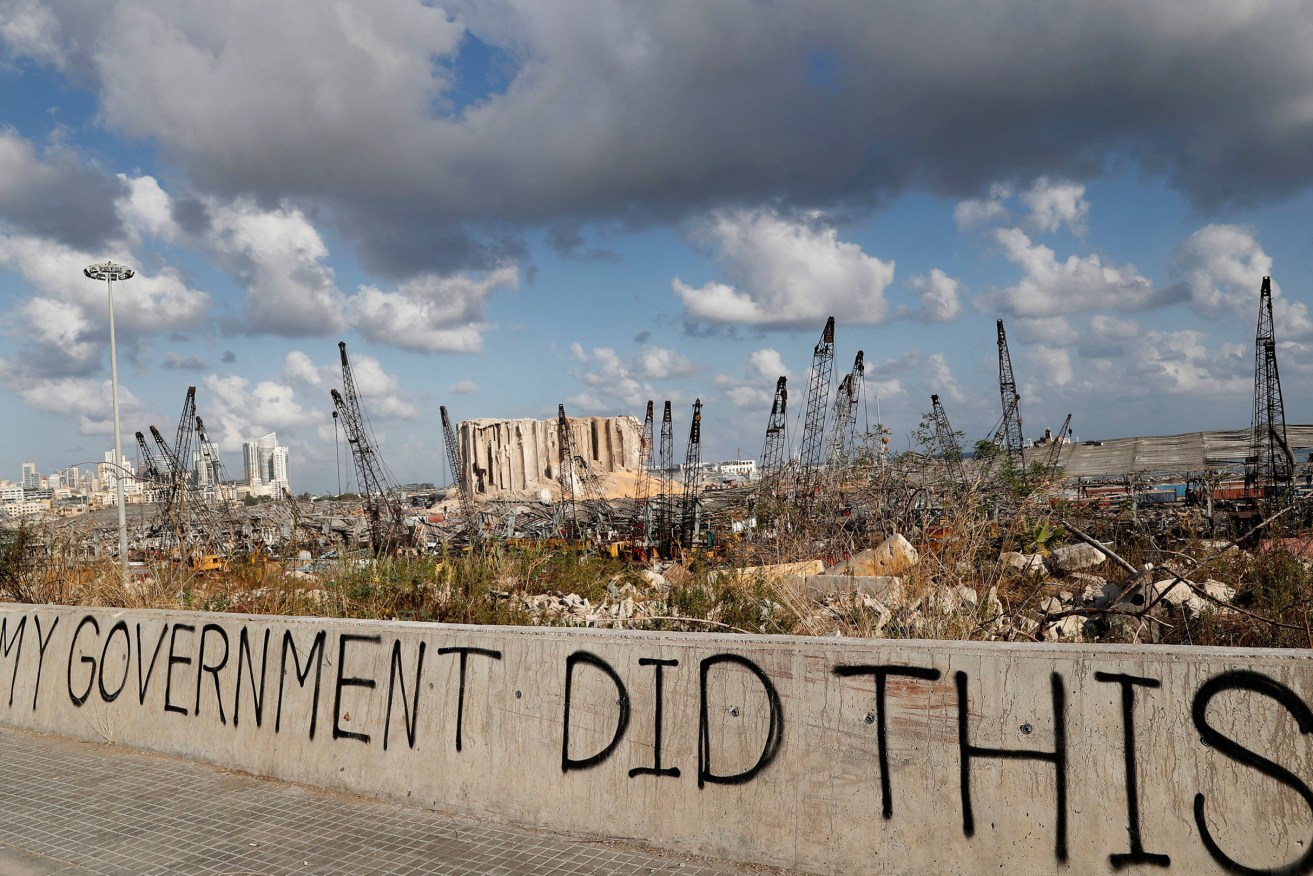Donors demand political changes to rebuild Beirut
World leaders have told Lebanon that financial aid to rebuild Beirut will only come when changes demanded by mourning protesters are implemented.

Photo: AP/Hussein Malla
During Sunday’s virtual conference that included Australian Prime Minister Scott Morrison, over 30 conference participants offered A$420 million in emergency humanitarian aid.
They also pledged help for a “credible and independent” investigation into last week’s explosion, another key demand of the Lebanese crowds who took to the streets Saturday and Sunday.
“In these horrendous times, Lebanon is not alone”, participants to the conference co-organised by France and the United Nations said in their final statement.
The participants to the teleconference promised to provide emergency aid – focusing on medicine and hospitals, schools, food and housing.
The donors warned that no money would be made available until Lebanese authorities “fully commit themselves to timely measures and reforms expected by the Lebanese people.”
They also promised the aid will be coordinated by the UN and delivered directly to the Lebanese people – in a clear indication that no money is going to the government and its coffers.
French President Emmanuel Macron, whose country once governed Lebanon as a protectorate, said “we have to do everything we can so that violence and chaos do not win the day.”
“The explosion of August 4 was like a thunderbolt. It’s time to wake up and take action. The Lebanese authorities now have to put in place … political and economic reforms.”
Amid the teleconference participants were President Donald Trump, Jordan’s King Abdullah II, Egypt’s President Abdel Fattah el-Sissi and other top officials from China, the European Union and the Gulf Arab countries.
On Sunday, a Lebanese Cabinet minister resigned amid signals that the embattled government may be unravelling in the aftermath of the devastating blast.
Manal Abdel-Samad’s resignation, in which she cited failure to meet the people’s aspirations, was followed by a swirl of reports that other ministers were also resigning.
If seven of the 20 ministers resign, the Cabinet would effectively have to step down and remain in place as a caretaker government.
Closed-door meetings into the night and a flurry of phone calls between Prime Minister Hassan Diab and several ministers followed her announcement.
The political haggling put off more resignations, and a Cabinet meeting is planned on Monday.
As the political negotiating took place, protesters converged again on the parliament area Sunday afternoon, setting off another night of violent demonstrations.
Hundreds of protesters clashed with security forces, attempting to breach the heavily-guarded parliament.
Security forces responded with tear gas and chased the protesters in the streets of downtown, in a smaller repeat of the scene from the night before.
-AAP
Want to comment?
Send us an email, making it clear which story you’re commenting on and including your full name (required for publication) and phone number (only for verification purposes). Please put “Reader views” in the subject.
We’ll publish the best comments in a regular “Reader Views” post. Your comments can be brief, or we can accept up to 350 words, or thereabouts.




